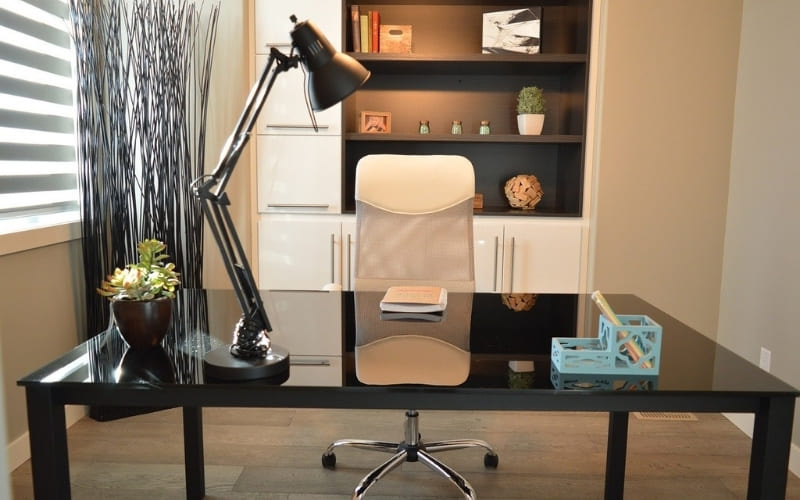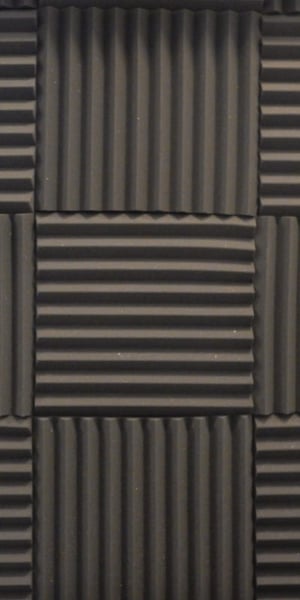

How to Soundproof an Interior Space in Des Moines, Iowa 🔇
The coronavirus changed the way we live and work, forcing many of us to work from home for the first time this year. Unfortunately, homes aren’t usually designed to be soundproof. While you’re trying to focus on a Zoom call, your spouse or partner may be on his or her own call at the same time your teenager is participating in a remote trumpet lesson. With so many competing sounds, concentrating can be difficult. If your Des Moines home is noisier than you’d like, soundproofing your space offers an excellent solution.
Soundproofing or Acoustic Treatment: What’s the Difference?

Acoustic treatment reduces echoes in a room and can be helpful if you’re a musician and want to produce professional quality recordings at home. Adding soft or hard acoustic panels to your walls reduces reverberations that affect sound quality, while incorporating diffusers to scatter sound reflections creates a fuller sound.
Soundproofing minimizes sounds from other rooms and makes it more difficult for other people to hear sounds from the soundproofed space. If you’re a musician, you may want to use both acoustic treatment and soundproofing to improve sound quality and prevent sound from traveling to other parts of your home.
When you only want to reduce distractions in your home office or other interior spaces, a soundproofing upgrade offers the best option. In addition to making your home more comfortable, soundproofing also improves the value of your home.
Here's a more detailed breakdown on the differences between acoustic treatment and soundproofing.
How Can I Soundproof Walls?
Several techniques can be used to reduce sound transmission in your home office or another room. When it comes to soundproofing, it helps to work with a contractor who has personal experience. An accomplished musician, Mike Butterworth, one of the owners of MBG Renovation, draws on his own soundproofing experiences when working with clients. He knows which approaches work and which ones do little to minimize sound and can recommend the best way to soundproof a wall.
When soundproofing interior walls, adding insulation can help. Although the insulation available in your local home improvement store won’t do much to stop sound transmission, acoustic deadening insulation will keep things quieter in your home. The insulation absorbs sound energy and vibrations, preventing sound from traveling through floors, walls and ceiling.
Other soundproofing techniques that can reduce sound transmission include:
- Resilient Channel: Adding a Z-shaped, metal resilient channel to your walls makes it harder for sounds to travel through drywall or sheetrock. When the channels are in place, the drywall no longer comes in direct contact with the studs, which weakens sounds.
- Specialty Drywall: Combining resilient channels with specialty drywall designed to block noise keeps sounds contained. The drywall offers an improvement of 5 sound transmission class (STC) points when compared to traditional drywall, according to a Medium.com article. STC points are used to measure the ability of interior and exterior walls, ceilings, doors, floors and windows to contain sounds.
- Green Glue: Green Glue dampening compound is applied between two sheets of drywall or plywood to reduce vibrations and can be used in walls, ceilings and floors. Even small openings around doors, windows or electrical outlets can create sound leaks. Green Glue caulk fills the openings, preventing sounds from penetrating the smallest spaces.
- Building a New Wall: Creating new walls adds an air gap between the old and new walls. The gap isolates sounds, while the double wall system creates more obstacles for sound to travel through. Although building new walls in your home office or basement is one of the more expensive soundproofing methods, it’s very effective.
Finding the Best Solution for your Noisy Home
When your home is too noisy, finding a contractor who has plenty of experience with soundproofing is crucial. Every home is different and requires different soundproofing measures and features. We’ll listen to your concerns and create a plan that will decrease the noise in your home. Contact us if you’re ready to live with less noise.
.png?width=455&height=131&name=mbg_shirt_whitelogo%20(1).png)

